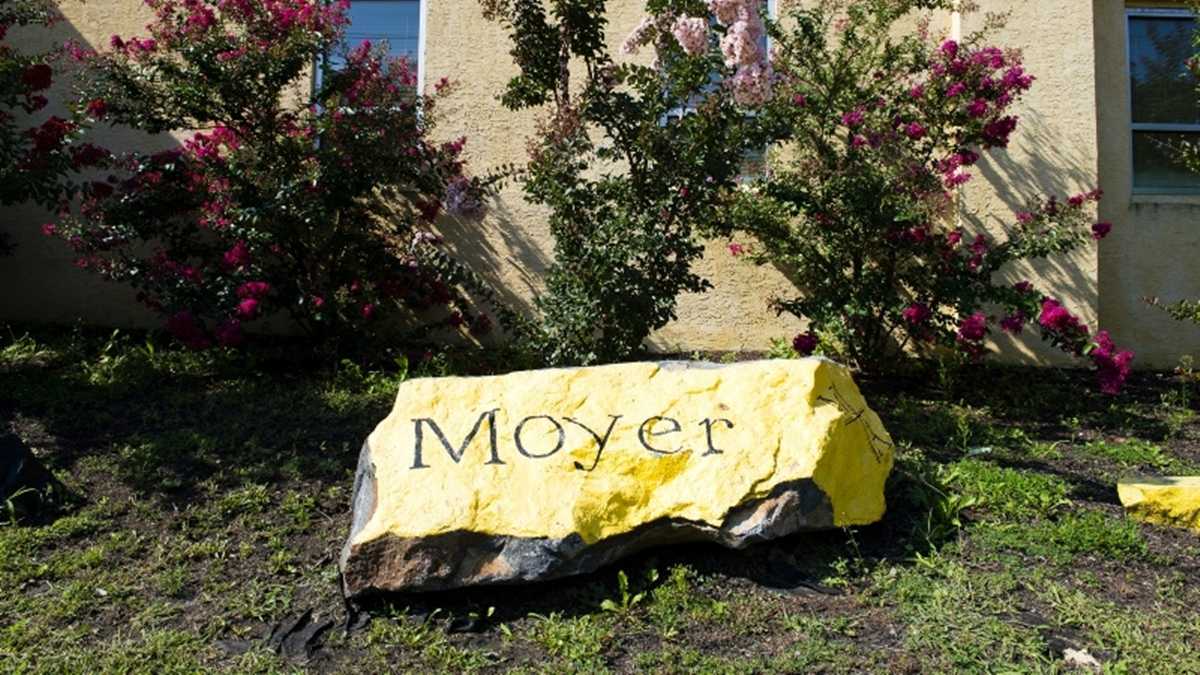The legacy of Moyer Academy on Delaware education

(Courtesy of the New Moyer Academy)
Moyer Academy will close at the end of the school year. John Watson has some additional thoughts.
John Watson’s commentary:
They are doing it again. In spite of those of us who gave good reasons why it should not happen, Mark Murphy, Secretary of Education and the State Board of Education , following the recommendations of the Department of Education Charter School Accountability Committee, voted to revoke, the charter of Moyer Academic Institute.
By calling for Moyer to close it’s doors after this school year, officials are ignoring the facts that Moyer students are improving under the new leadership of Keenan Dorsey, the school principal.
It seems to me they should have waited until the end of the year, to see how it all worked out, but instead chose to make it’s decision based on last years very bad test scores.
State Officials are basing their decision on what they say, among other things, is that “Moyer’s Curriculum is out of line with state rules”. I don’t know how many times I have heard that. And every time I thought, if that’s the problem at Moyer and other schools in Delaware, why don’t state education leaders go to those schools and correct the problems in the curriculum? Isn’t that their job? It should be. Could it be that Murphy and company don’t really care about it? Or may be they don’t know how to change things, just play the blame game.
In any case the low test scores in Delaware Schools tell me, one of the biggest problems in our schools depend entirely on a students abilities based on pen and paper testing only. Teachers never think about how the students might respond vocally if give a chance. Talk about the answer rather than trying to write about the questions in a test. Howard Gardner, a well known author and Harvard University Professor, has some information for our educators. In 2011, he won a Social Science Award for his development of the “Multiple Intelligence” theory. He has received honorary degrees from 29 colleges and universities, including those in Bulgaria, Canada, Chile, Greece, Ireland, Israel, and South Korea. My thanks to a good teacher friend of mine. who told me about Professor Gardner.
According to his theory of “Multiple Intelligences”, Professor Gardner believes there are several different ways of processing information. These ways are relatively independent of one another. The theory is a critique of the standard intelligence theory, which emphasizes the correlation among abilities. Since 1999, Professor Gardner has identified eight different types of Intelligence: linguistic, logic-mathematical, musical, spatial, bodily/kinesthetic, intrapersonal, interpersonal and naturalistic.
He is working on two additional intelligences: existential and pedagogical Before you think that’s a bits too much to digest, I have a good personal story to tell you about this different way we humans processing information. It is something that I saw in high school. Some of the students didn’t do well in english or math classes, but were excellent history research students. Our Civil and Revolutionary Wars were among their favorites. Many times they would challenge our teacher with questions about generals who fought in various campaigns. They were demanding the answer from the teacher’s memory, not a book. The students couldn’t use a book when our teacher questioned us so they wanted to see how the teacher could. Some times, the teacher got it wrong just like most of us did.
Some of those students got good at getting good grades in history from their ability to memorize it and to speak about it. Not having to write about it.
Sometimes it is the student who comes first not the curriculum. Where are the teachers today who can recognize a students Intelligence in ways other than pen and paper testing. I think Delaware State Education Secretary Mark Murphy should get a copy of Professor Gardner’s book, “Frames of Mind”. It’s available in the Delaware library system.
—-
John Watson is a long time observer of Delaware from his perch as a radio talk show host. You can comment to John via email: JohnWatson1506@comcast.net
WHYY is your source for fact-based, in-depth journalism and information. As a nonprofit organization, we rely on financial support from readers like you. Please give today.




